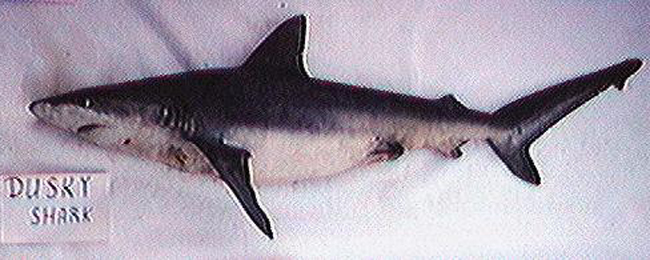Shark & Ray Conservation Week (Part 4 of a 6-part series – the Dusky Shark)
This story marks the fourth of six blog stories spotlighting New Jersey’s shark species.
THE DUSKY SHARK: LATE TO MATURE & SLOW TO REPRODUCE
By Michael Davenport, Wildlife Biologist & GIS Manager
The dusky shark provides a good example of why shark species and shark populations around the world are in trouble. Dusky sharks have been known to live up to 40 years. Females aren’t ready to start breeding until they’re about 21 years old. Within that 21-year time, they face dangers from other predators, such as larger sharks. In a natural setting, free of human interference, enough sharks survive to be able to reproduce fast enough to compensate for those sharks which don’t reach adulthood.

Due to overfishing, dusky shark populations are only a small fraction of what they once were. They are often hunted for their fins or they are caught as by-catch when commercial fishermen are targeting other species. Due to their slow growth, late maturity, and low rate of reproduction, the species simply cannot replace its numbers fast enough. Because of this, the dusky shark is classified by NOAA Fisheries as a Species of Concern throughout its range and the species has been prohibited in both commercial and recreational fisheries since 2000. Though it has no legal conservation status in New Jersey, it is still illegal to take, possess, land, purchase, or sell them.
To learn more about this shark species which occurs in New Jersey waters, visit our Field Guide page.
Discover more from Conserve Wildlife Foundation of NJ
Subscribe to get the latest posts sent to your email.